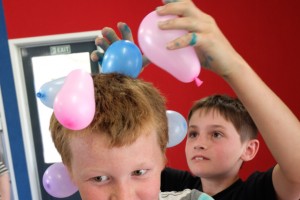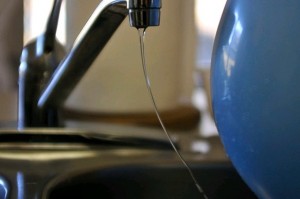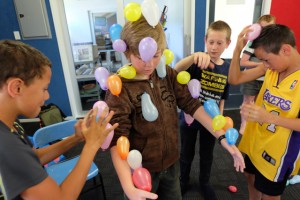Everything you see around you is made up of tiny particles called atoms. These atoms are made up of even smaller particles called protons, electrons and neutrons. The protons are positively charged, the electrons are negatively charged and as you've probably guessed, neutrons are neutral and have no charge.
Most of the time the positive and negative charges are equal in the atom, but friction (rubbing against each other) causes imbalance ... results in something shocking!




















